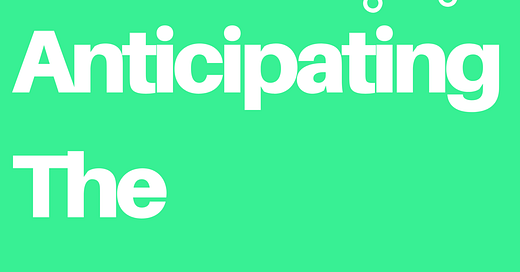This newsletter is really a public policy thought-letter. While excellent newsletters on specific themes within public policy already exist, this thought-letter is about frameworks, mental models, and key ideas that will hopefully help you think about any public policy problem in imaginative ways. It seeks to answer just one question: how do I think about a particular public policy problem/solution?
PS: If you enjoy listening instead of reading, we have this edition available as an audio narration on all podcasting platforms courtesy the good folks at Ad-Auris. If you have any feedback, please send it to us.
- RSJ
A short mid-week note on some points that have emerged from the Pratap Bhanu Mehta resignation issue.
Let’s take the issue of ‘shrinking liberal space’ in the public discourse and how this is another example of it. All politics is a contestation of narratives. The primary motive is to have your narrative dominate while diminishing the rest. So, from a realist lens, this is what every political party aspires to while few achieve. Therefore to expect any different from any dominant political grouping is to live under a delusion. You might desire a secure and self-assured dispensation that lets a thousand different and often dissenting ideas bloom. But that ideal state of affairs is rare anywhere in the world and in history. India is no stranger to a narrative dominating its body politic for decades. Good or bad is beside the point here. There’s another narrative in town now and, naturally, it wants to dominate forever.
Questions
That brings us to a couple of questions. Isn’t good or bad that was conveniently brushed aside above, an important point in this context? If this narrative dominance is what is to be expected, should this be a worry for India?
Well, narrative dominance of any kind is an unstable equilibrium. For three reasons.
One, we aim for dominance but once we achieve it, boredom sets in. No one likes to watch games where their team is so dominant that there is no contest. Over time we lose interest or we create two versions of our team to play against each other. Soon it is “us” versus “them” again. Either way, the narrative dominance is broken. This is also the reason there can never be a successful conservative-only or liberal-only social media platform in the long term. People crave to argue. To go one up on others. They will invent enemies if they have to. We have written about Schmitt’s friend-enemy construct in politics before here.
Two, narrative dominance of any kind doesn’t emerge out of a vacuum. It is built on the vestige of a previously dominant narrative. Those who were dominated by the previous narrative, remember those times. The humiliation and the rage of being under it is the fuel that sustains the current narrative. Unfortunately, humans are mortal. They die and a whole new generation arrives who have no first-hand experience of the previous narrative. They only learn about it from the surviving members who tell them about the horrors of the past. Or, from books. That’s one of the reasons why changing history textbooks is always on the agenda of every dispensation in the world. You control the past, you control the future. But time wears down everything eventually. In the pre-internet era, this could take multiple generations to come to a pass. That has shrunk now. Alternative narratives sustain themselves online and the information velocity facilitates their spread.
Three, there’s always a tendency to overreach among those who are driving their narrative dominance. Nothing remains sacrosanct in their desire to dominate - university, media, courts, law enforcement agencies, regulators or independent bodies. In a democracy, with strong independent institutions, the checks and balances in-built in the system come into play to counter this. This is a battle of attrition between institutions and political formations. The institutions usually win because they are designed to be permanent. They are necessary for democracy to survive. If they are subverted, democracy withers away.
The Indian Problem
Between the three, the institutional response tends to be the fastest way to counter-narrative dominance. The other two could take time and a lot could be undone during that period. The challenge in India is the institutional mechanism has been systematically weakened over many decades. To begin with, we inherited colonial institutional and legal structures that weren’t exactly suited for liberal democracy. Whatever gains we made in building new institutions and strengthening them were lost starting from the 70s. The Emergency being a high watermark of that era. Since then it has been one step forward and two backward on this. The reasons why a state or the union government in India can make citizens or private entities (like a private university) fall in line are two-fold. One, there are just too many outdated laws often working at cross purposes that are impossible for anyone to manage. This gives the state the power to haul you up for breaking the law. Two, the willingness of the institutions to do the bidding of the political class because their independence has been compromised. This means a CBI or a Tax raid is always around the corner. Coercive institutions are a structural problem and there’s little incentive for political parties to change this.
This seems like an irreversible slide. The problem with this slide is clear. Overtime when this narrative loses steam and an alternative narrative emerges (as it will), expect its adherents to be keener to dominate every sphere. To eliminate space for any dissent. And they will do so using the same tools - political and ideological mobilisation that overwhelms the institutions.
Pratap Bhanu Mehta might have been countering the narrative of the current regime in his op-ed pieces. But the larger point he was making was probably beyond it. He was alerting us to the dangers of this inevitable slide.
HomeWork
Reading and listening recommendations on public policy matters
[Article] “The Spectre of Totalitarianism: The worst offenders in the new climate of intolerance are our universities” writes Edward Skidelsky in The Critic. Money quote: The “woke” left is currently pursuing this goal by way of a Gramscian “long march through the institutions” — a progressive co-option of the schools, universities, state bureaucracies and big corporations.











Share this post